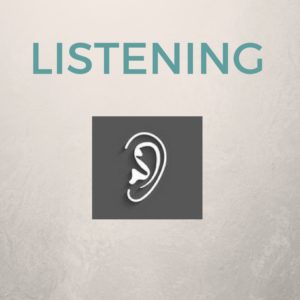Disclaimer: My Fifth Week Ramblings are a series of posts that reflect my current musings. While the other four weeks offer training in conversation and apologetics, this week is reserved for more of my expressive side. Therefore, you will not see footnotes and references. Rather, as can be seen in this week, I offer the interplay of the experiential, affective, and propositional as seen through my eyes.
Every once in awhile, I lament the situation of the decreasingly thoughtful high-profile leadership I see in our society. This week, for me, will mark a historic moment in the part of U.S. history to which I belong. It is a moment that has  culminated over years of slow anticipation. We now see the effects of which Lewis warned in The Abolition of Man: we have to come to the point of creating men without chests. We’ve removed moral objectivity from the marketplace of ideas. We have driven moral relativism into the heart and soul of our society through education, manipulation, consumerism, lobbying and artistic appeal. Yet, we still demand of our leadership that they have virtue and honor. One problem with our demand: they are us. We are the relativists. We are the ones who have bred these morally ambiguous humans. We are the ones who constantly question how a person can claim anything is true at all. Where there can be no objective morality, there can be no moral reasoning in the choice for leadership. Where there is no authority, no one can be trusted. Further, there is no plumb line, nor standard, by which we must check our thoughts and actions. And those words ring out hopelessness.
culminated over years of slow anticipation. We now see the effects of which Lewis warned in The Abolition of Man: we have to come to the point of creating men without chests. We’ve removed moral objectivity from the marketplace of ideas. We have driven moral relativism into the heart and soul of our society through education, manipulation, consumerism, lobbying and artistic appeal. Yet, we still demand of our leadership that they have virtue and honor. One problem with our demand: they are us. We are the relativists. We are the ones who have bred these morally ambiguous humans. We are the ones who constantly question how a person can claim anything is true at all. Where there can be no objective morality, there can be no moral reasoning in the choice for leadership. Where there is no authority, no one can be trusted. Further, there is no plumb line, nor standard, by which we must check our thoughts and actions. And those words ring out hopelessness.
But perhaps all is not lost…
When I come to the point of such despair about my people, it is time for me to lift my head and look around. There is a remnant who has never given up on finding the good, true and the beautiful. There are thinkers who care about the fundamental issues that cut at the souls of our people. Yes, I must lift my head, and spirit, to be reminded and encouraged. There is still hope.
One such remnant is found in the Evangelical Philosophical Society. Founded in 1974, the Evangelical Philosophical Society (EPS) is an organization of professional scholars devoted to pursuing philosophical excellence in both the church and the academy. What’s a philosophical society got to do with anything? Have you noticed the trend towards systematically removing philosophy from…well, everything? Sure, but it doesn’t really matter, does it? Aren’t  philosophy degrees pointless? After all, they do not offer anything tangible for our culture. To the contrary, philosophy is of utmost importance. Through the study of philosophy, we learn to think critically and to think well; a valuable asset in the war against the manipulation of our minds (which eventually leads to our votes). Through the study of philosophy, we learn to analyze and critique worldviews, including ones that incorporate relativism. I’ve heard much illogical gibberish from people who claim to use “evidence and reason” in this political season. It’s past time for the larger body of Christ to return to our Christian tradition of loving wisdom; ie. philo (love) sophia (wisdom). We must train ourselves in the knowledge of God so as not to be swept up by the deceitful philosophies of men (Col 2:8).
philosophy degrees pointless? After all, they do not offer anything tangible for our culture. To the contrary, philosophy is of utmost importance. Through the study of philosophy, we learn to think critically and to think well; a valuable asset in the war against the manipulation of our minds (which eventually leads to our votes). Through the study of philosophy, we learn to analyze and critique worldviews, including ones that incorporate relativism. I’ve heard much illogical gibberish from people who claim to use “evidence and reason” in this political season. It’s past time for the larger body of Christ to return to our Christian tradition of loving wisdom; ie. philo (love) sophia (wisdom). We must train ourselves in the knowledge of God so as not to be swept up by the deceitful philosophies of men (Col 2:8).
At www.epsociety.org there is a wealth of knowledge from some of the world’s greatest thinkers…and those thinkers are Christians! Please check out EPS today to see where you can begin to fight the battle for your own mind.
Membership
If you are interested in becoming a society member, you can join as full, associate, or student members. Information here.
Journal
If you’d like to receive the EPS Journal, Philosophia Christi, you can get started here.
Social Media
Facebook: Evangelical Philosophical Society
Twitter: EPSOCIETY.ORG










 reducing our consciousness, and thoughts (the immaterial), to simply a program run by the brain (the material matter) has the unintended consequence of destroying the basis for human free will. Neuroscientist Raymond Tallis, in his book refuting the idea that consciousness is reducible to neural activity in the brain,
reducing our consciousness, and thoughts (the immaterial), to simply a program run by the brain (the material matter) has the unintended consequence of destroying the basis for human free will. Neuroscientist Raymond Tallis, in his book refuting the idea that consciousness is reducible to neural activity in the brain,